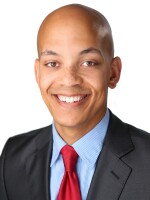President Trump is about to make his debut at an institution he has often berated. For the first time, he will attend the annual United Nations General Assembly in New York, which brings together leaders of the 193 member nations for a week of meetings and speeches.
As president-elect, he called the U.N. "just a club for people to get together, talk and have a good time."
But it's a "new day" at the U.N., said U.S. Ambassador to the United Nations Nikki Haley.
"The U.N. has shifted over the past several months. It's not just about talking. It's about action," Haley told reporters Friday in the White House press briefing room. Haley and Trump's national security adviser, H.R. McMaster, outlined the president's goals for next week's U.N. summit.
McMaster said Trump will push a message of "reform," calling for more transparency and accountability at the U.N. "The United Nations, of course, holds tremendous potential to realize its founding ideals, but only if it's run more efficiently and effectively," McMaster said.
Promoting an "America First" agenda at the U.N.
Previous administrations have pressed the U.N. to embrace change. But, unlike past presidents, Trump is promoting his "America First" agenda, and he has called for slashing U.S. financial contributions to the U.N.
"I think foreign leaders expect Trump to have some harsh words for the U.N.," said Richard Gowan, a U.N. expert with the European Council on Foreign Relations. "They will tolerate that if he balances it with some positive messages about cooperation and especially if he emphasizes that he wants to work diplomatically on some of the major crises of the moment."
The Trump administration is also shrinking the size of the diplomatic delegation at this year's U.N. summit. Trump administration officials characterize it as a cost-saving measure, but the move could indicate something more.
"I think it's a signal that the U.S. takes the General Assembly much less seriously than it did under President Obama," said Gowan. "That creates openings for other leaders like President Emmanuel Macron of France to step up and say that actually they are the guys who are going to lead the U.N. more effectively from now on."
Haley: "North Korea front and center"
Haley predicted that the U.S. approach at the U.N. summit would be "solid" and "strong," as diplomats and top U.S. officials tackle global challenges.
"There are no shortage of issues, with North Korea being front and center," said Haley. "Iran will be an issue. Syria will certainly be talked about. Terrorism efforts and how we counter that is a huge topic." The president is expected to address some of those issues on Tuesday when he takes the lectern at the U.N. to address world leaders. Haley confirmed that she has read a draft of the speech.
"I personally think he slaps the right people, he hugs the right people, and he comes out with [the] U.S. being very strong in the end," she said.
Copyright 2021 NPR. To see more, visit https://www.npr.org. 9(MDA5NTM4MTIyMDE0MTg3NDc2MTVlZjdmNQ001))



